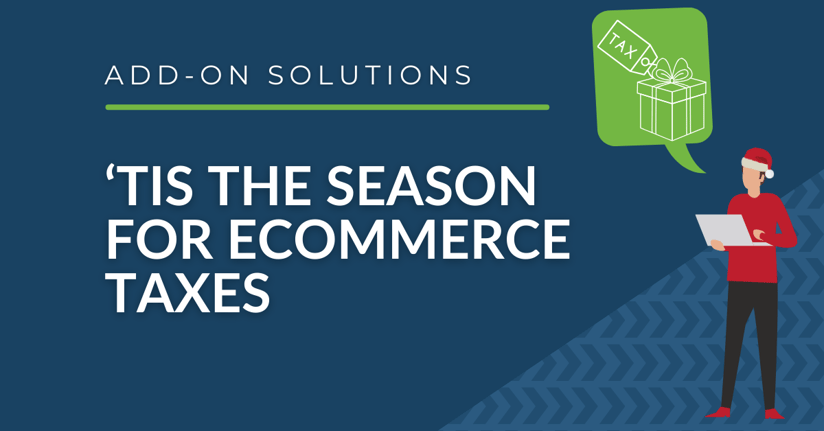The holiday rush is the busiest time of year for most retailers. Although this season holds the potential for great financial gain, it is also a time when sales tax can have a significant impact on a seller’s bottom line.
Retailers are required to collect sales tax on all taxable sales, regardless of how the sale was carried out; in-store, online, by phone, etc. This is one of many challenges retailers face in the run-up to the holiday season, when there is traditionally a very high volume of sales.
According to the National Retail Federation, the forecast for 2023 holiday season’s spending is expected to reach record levels of $957 - $966 billion USD. This prediction includes an increase of 7-9% from the previous year in ecommerce alone. Deloitte expect that during the 2023 holiday season the average shopper will spend over $1600. The holiday season is a time when many businesses generate a significant portion of their annual revenue.
Recent years has seen a rapid rise in mobile shopping that has transformed the ecommerce landscape. This change in consumer behavior presents both opportunities and challenges for sellers. On the one hand, the surge in mobile purchases opened a new market, allowing sellers to reach a wider audience and expand their customer base. However, this shift has also introduced complexities in sales tax compliance, requiring sellers to navigate a labyrinth of state and local regulations that are frequently updated.
To maximize profits during the holiday season, retailers must prepare in advance for this time of year, on several levels. They need to research the market and identify future trends so that in the operational sphere they secure adequate amounts of the stock they anticipate will sell. They need to come up with an effective marketing plan for the products they are promoting. Furthermore, due to the increase in ecommerce, businesses need to have an efficient delivery service ready for incoming orders, so that they do not lose business as a result of an inability to deliver on time.
This is complicated on both the operational and tax levels. When a business uses a third-party to ship its orders, it may not always be clear who is responsible for collecting and remitting sales tax, and the business receiving service from the third party may be held liable for collecting tax and exemption certificates. This means that the way a business delivers its products to customers may impact on its sales tax obligations. Delivering products in a company vehicle for instance, may create nexus in some states.
In addition, storing inventory in a warehouse or using a fulfillment center to process orders may establish a physical nexus, which means a business is then required to collect and remit sales tax in that state.
As sales tax changes from one jurisdiction to another, tax exemption certificates differ from one jurisdiction to another, but that is not the whole story. There are also tax holidays which are a temporary tax break. In the United States, tax holidays often suspend state and local sales taxes, which varies from one location to another. A seller must be across all these variables for any given transaction.
As mentioned earlier, during this season it is typical to see a sharp rise in sales, thus sellers who want to remain compliant must pay very close and continuous attention in order to stay on top of their sales tax status as they could rapidly cross a sales tax nexus threshold and be liable for tax remittance.
A recent study conducted by Baymard Institute, showed the average cart abandonment rate in the USA is around 70%. This survey found that shipping and tax were two of the most common reasons for cart abandonment. Consumers do not appreciate being surprised by additional tax that was not calculated earlier during the shopping process.
It is therefore crucial that a seller ensures that the shopping experience on their site is as smooth as possible for the buyer, and that the tax has been calculated accurately for each transaction.
This is where a tax automation system such as Avalara’s makes all the difference. The Avalara system calculates in real-time the retailers tax status and provides invaluable information and insights which allow sellers to stay focused on developing and expanding their business rather than worrying about tax.
Using Avalara’s cutting-edge system accords a company peace of mind, knowing that all it is tax related issues are accurately calculated in real-time, that it is registered in the relevant states, that it is collecting the exact amounts of tax and only when applicable and remitting to the appropriate authorities. The automation process streamlines sales tax compliance, improves the shopping experience for customers and ensures sellers avoid costly penalties.




